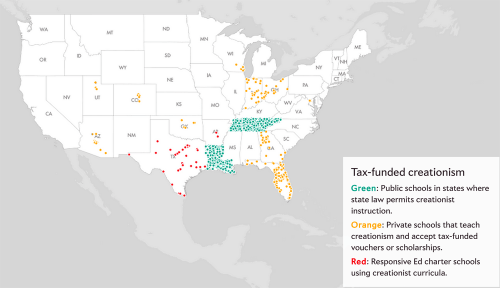Two creationist camps, both alike in dignity, in fair America, where we lay our scene, from ancient grudge break to new mutiny, where civil blood makes civil hands unclean. Not that they were ever very civil to begin with.
The Discovery Institute snipes at Answers in Genesis, suggesting that the Nye-Ham debate is going to humiliate the science side and also clarify the difference between Intelligent Design creationism and Overtly Religious creationism; Ken Ham fires back at the Discovery Institute, arguing that ID fails to lead people to the One True God.
This can only end in blood, we hope. Or poison.


